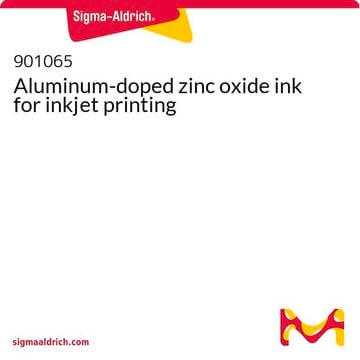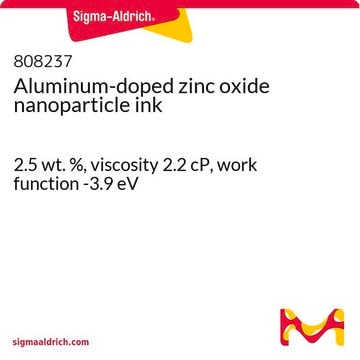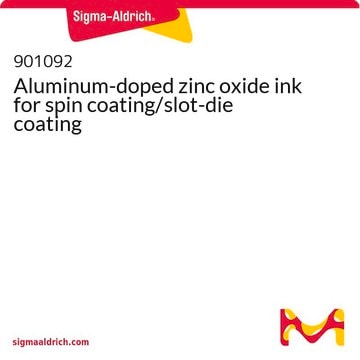909114
Methyl germanane
Synonym(s):
Methyl-germylidyne, Methyl-terminated germanane
Sign Into View Organizational & Contract Pricing
All Photos(1)
About This Item
Empirical Formula (Hill Notation):
GeCH3
CAS Number:
Molecular Weight:
87.67
MDL number:
UNSPSC Code:
12352302
NACRES:
NA.23
Recommended Products
form
solid
InChI
1S/CH3Ge/c1-2/h1H3
InChI key
LCTMIXFKOJXTHA-UHFFFAOYSA-N
Application
Germanane is novel 2D graphene analog material. However, in sharp contrast to graphene it exhibits semiconducting properties with direct band gap of 1.50 eV. Germanane exhibits high electron mobility and its alkylation allows band gap tuning from 1.50 eV for allyl to 1.62 for methyl germanane. The semiconducting properties of alkylated germanane make them suitable for application is photocatalysis, optoelectronic, sensing etc
Storage and Stability
Air sensitive Material: Handle in glove box. Handle and store under nitrogen atmosphere
Storage Class Code
11 - Combustible Solids
WGK
WGK 3
Flash Point(F)
Not applicable
Flash Point(C)
Not applicable
Certificates of Analysis (COA)
Search for Certificates of Analysis (COA) by entering the products Lot/Batch Number. Lot and Batch Numbers can be found on a product’s label following the words ‘Lot’ or ‘Batch’.
Already Own This Product?
Find documentation for the products that you have recently purchased in the Document Library.
Liquid-Phase Exfoliation of Germanane Based on Hansen Solubility Parameters.
Nakamura D, et al.
Chemistry of Materials, 30 (15), 5333-5338 (2018)
Tailoring the Electronic Structure of Covalently Functionalized Germanane via the Interplay of Ligand Strain and Electronegativity.
Jiang S, et al.
Chemistry of Materials, 28, 8071-8071 (2016)
Zhenhua Liu et al.
Chemical communications (Cambridge, England), 50(75), 11046-11048 (2014-08-08)
A novel 2D material germanane (GeH), which was synthesized by an ion-exchange approach, was firstly found to exhibit photocatalytic performance in the hydrogen evolution of water splitting and decomposition of organic contaminants under illumination of visible light (λ ≥ 420
Electronic properties of germanane field-effect transistors.
Madhushankar B N, et al.
2d materials, 4, 021009-021009 (2017)
Andrew C Serino et al.
ACS nano, 11(8), 7995-8001 (2017-08-02)
The high theoretical energy density of alloyed lithium and germanium (Li15Ge4), 1384 mAh/g, makes germanium a promising anode material for lithium-ion batteries. However, common alloy anode architectures suffer from long-term instability upon repetitive charge-discharge cycles that arise from stress-induced degradation
Our team of scientists has experience in all areas of research including Life Science, Material Science, Chemical Synthesis, Chromatography, Analytical and many others.
Contact Technical Service







